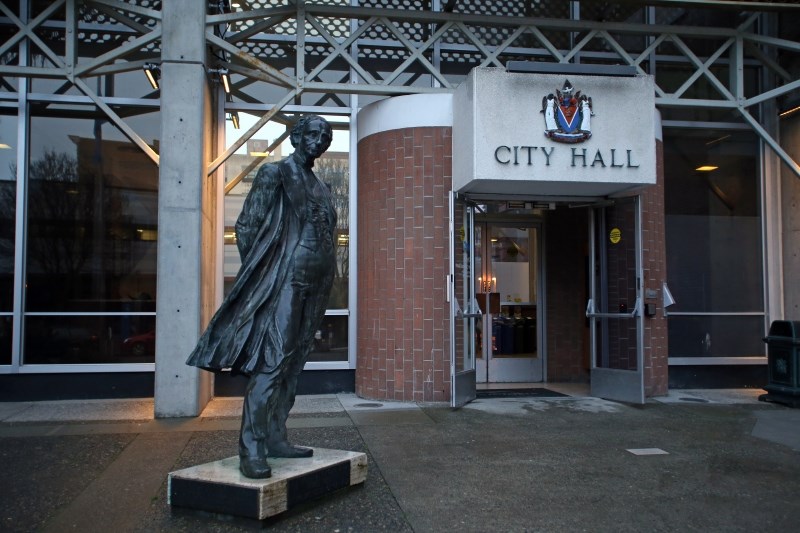Victoria city council wants to keep its budget options open even in the face of additional costs due to a shift in Medical Services Plan costs.
Councillors this week directed staff to prepare two options for the 2019 financial plan: One that that keeps the tax increase to inflation plus one per cent, including costs of police, and one that provides for inflation plus one per cent including police costs, and adds an increase for the shift in MSP premiums.
“I think this is a prudent way to go. On the notion of MSP premiums, I think it is good to get rid of them,” said Mayor Lisa Helps, who added a sensible approach by the province would be to phase in the shift over five years.
“I don’t think it’s good to ask property taxpayers to pay health taxes through property tax — maybe through income tax or some other mechanism.”
City staff have said a further two per cent increase in property taxes — or corresponding cuts in services — would be needed in 2019 to cover the province’s new tax on payrolls. Instead of individuals and families paying MSP premiums, costs would be shifted to the payroll tax. To cover the tax on Victoria municipal worker payrolls, that could mean a total property tax increase next year of 4.5 to 5.0 per cent when other increases are included.
Coun. Ben Isitt said he doesn’t have concerns about the province’s plan.
“I think lifting the tax burden from individual working people who have very fixed incomes toward employers who have more options and more resources, I think is a sensible direction,” Isitt said.
“I do like diversification of taxes in this manner and based on ability to pay. Looking at new tax streams, I think, is a progressive direction the provincial government is in, and I personally don’t think that this council should put itself in the camp of reactionary pushback against the government’s agenda.”
Coun Geoff Young said the city apparently wants to be all things to all people but doesn’t want taxes to keep going up — a premise which is “pie in the sky.”
Even though Victoria has one of the lowest income levels in the region, the city has embarked on initiatives “that have been proven to be costly and have taken staff time that I think we can ill afford,” he said.
He cited as examples: cannabis regulation, the plastic bag ban, two artists in residence, encouraging supportive housing and health services that incur policing costs, rental housing standards, and increasing staff in the public engagement department.
Starting Jan. 1, 2020, the province will levy the full payroll tax to offset the elimination of MSP premiums. Employers with payrolls totaling more than $1.5 million annually will face a 1.95 per cent hit. Payrolls between $500,000 and $1.5 million will get a reduced rate, and payrolls of $500,000 or less will not pay the tax.
The Employer Health Tax will be phased in next year, with employers having to pay 50 per cent of MSP premiums as well as the Employer Health Tax.
Premier John Horgan defended the Employer Health Tax on Thursday.
“We heard it loudly and clearly during the election campaign that the public wanted to see the backside of MSP premiums,” Horgan said at an event in Shawnigan Lake. “So in order to do that and to provide resources to the health-care system, we’ve done what every other jurisdiction in Canada has done: found another way to raise revenues through an employer tax or a payroll tax.”
Only 15 per cent of businesses will pay the new tax, he said.
“I think it was a measured approach and we’re going to proceed with that.”
— With files from Katie DeRosa



